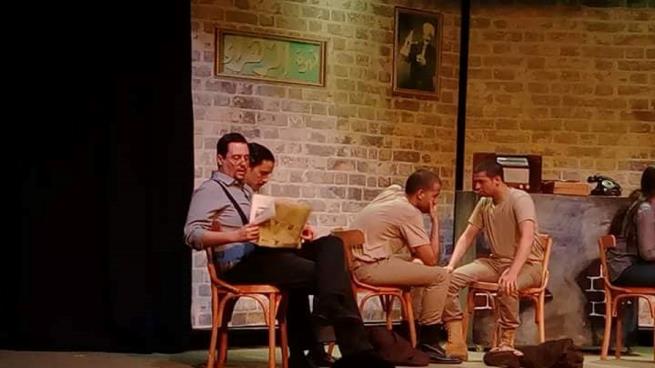Free Walid Atef & Ahmed al-Garhy
Egyptian theatre artists Walid Atef and Ahmed al-Garhy were arrested in March 2018 after staging a play in Cairo that featured actors wearing military uniforms. They remain in military custody, accused by the military prosecution of “insulting the Egyptian Armed Forces.” They are expected to face a military trial.
The amateur theatre company that staged the play, titled “Suleiman Khater”, was led by Atef, the playwright, and al-Garhy, who directed the production. They are two of six people arrested by Egyptian authorities following the performance, along with four officials from the Cairo sports club where it was performed.
“Suleiman Khater” tells the story of an Egyptian soldier of the same name who killed seven Israeli tourists on the Sinai Peninsula in 1985. Khater was later found hanged in his prison cell, and the official story that he committed suicide has long been questioned by skeptics who believe he may have been murdered by then-President Hosni Mubarak’s regime.
A group of Egyptian playwrights and directors who released a statement in support of the “Suleiman Khater” artists the week after their arrest stated that Atef and al-Garhy chose to have their actors wear army uniforms out of “love and appreciation for the Egyptian army”, as well as out of pride and admiration. The statement also argues that the authorities could have addressed the problem with the creative team, rather than choosing to immediately arrest them and accuse them of a crime.
Nonetheless, the arrests came just days after President Sisi himself had declared any defamation of Egypt’s armed forces a form of “high treason”.
Atef and al-Garhy are not the only Egyptian theatre artists to face censure in recent times. Also in March, director Ahmed al-Gattar cancelled showings of his play “Before the Revolution” rather than cut five scenes at the request of the authorities. Additionally, the Egyptian culture minister announced plans in March to establish a Censorship of Artistic Works Authority in seven major cities.


